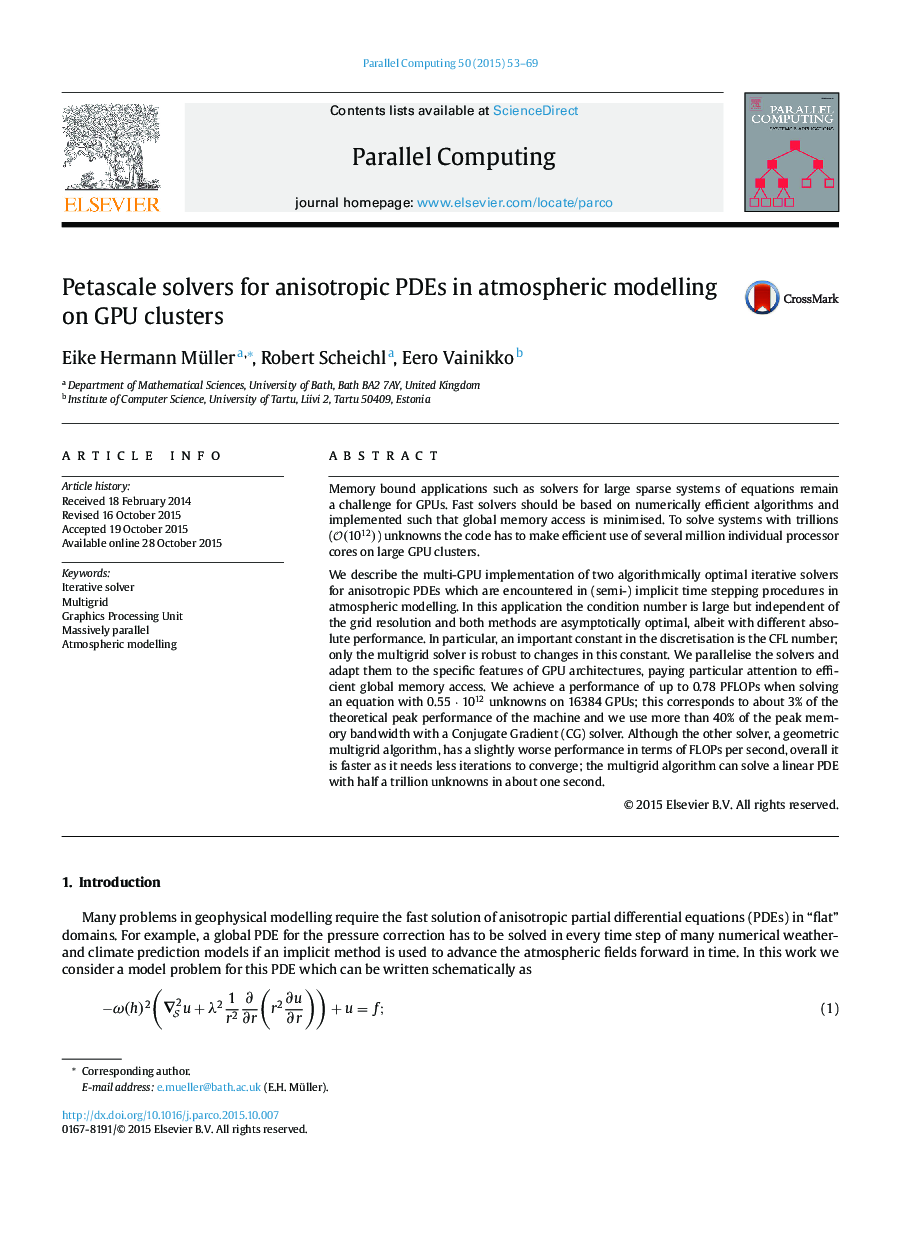| کد مقاله | کد نشریه | سال انتشار | مقاله انگلیسی | نسخه تمام متن |
|---|---|---|---|---|
| 523941 | 868531 | 2015 | 17 صفحه PDF | دانلود رایگان |

• Multi-GPU parallelisation of scalable CG and multigrid solvers for anisotropic PDEs.
• Efficient matrix-free CUDA implementation minimises global memory access on GPUs.
• Excellent weak scaling on up to 16,384 nVidia K20X cards (44 mio. cores, Titan, OLCF).
• PDEs with 5x1011 unknowns can be solved in 1 s to an accuracy of 10−510−5.
• Achieved performance of 0.78PFLOPs and memory bandwidth utilisation of more than 40%.
Memory bound applications such as solvers for large sparse systems of equations remain a challenge for GPUs. Fast solvers should be based on numerically efficient algorithms and implemented such that global memory access is minimised. To solve systems with trillions (O(1012)O(1012)) unknowns the code has to make efficient use of several million individual processor cores on large GPU clusters.We describe the multi-GPU implementation of two algorithmically optimal iterative solvers for anisotropic PDEs which are encountered in (semi-) implicit time stepping procedures in atmospheric modelling. In this application the condition number is large but independent of the grid resolution and both methods are asymptotically optimal, albeit with different absolute performance. In particular, an important constant in the discretisation is the CFL number; only the multigrid solver is robust to changes in this constant. We parallelise the solvers and adapt them to the specific features of GPU architectures, paying particular attention to efficient global memory access. We achieve a performance of up to 0.78 PFLOPs when solving an equation with 0.55 · 1012unknowns on 16384 GPUs; this corresponds to about 3% of the theoretical peak performance of the machine and we use more than 40% of the peak memory bandwidth with a Conjugate Gradient (CG) solver. Although the other solver, a geometric multigrid algorithm, has a slightly worse performance in terms of FLOPs per second, overall it is faster as it needs less iterations to converge; the multigrid algorithm can solve a linear PDE with half a trillion unknowns in about one second.
Journal: Parallel Computing - Volume 50, December 2015, Pages 53–69